Home »
Misc »
How to be mentally strong in basketball
How to be mentally strong in basketball
5 Ways to become more MENTALLY TOUGH
Basketball Tip
"Great souls have wills; feeble ones have only wishes." Chinese Proverb
Mental toughness means backbone, daring, determination, fortitude, guts, mettle, moxie, nerve, perseverance, resolution, spirit, tenacity, toughness. It is is the ability to persevere in pursuit of a goal; no matter how long it takes.
Here are five ways to become more mentally tough on and off the court.
1. Do the hard things first. Pick your weakest spot and work on it first every practice. Choose the weight lifting exercise you like least and do it right away. Pick the subject you need the most work in and always start with it. If you wait, chances are you won’t want to work on your weakness or you will not give it your best effort. When we choose the hard things in life we develop mental toughness and life becomes easier.![]() When we always choose the easiest we get weaker.
When we always choose the easiest we get weaker.
2. Be specific. If you want to work on upper body strength, write down the specific number of push-ups you will do. Counting backwards can help motivate you to finish. When working on math, pick a time limit and the number of problems you want to get finished in that time limit. For shooting, decide how many shots you will make in a row from different spots on the court, if you miss more than two shots in a row, sprint dribble down and back with the off-hand. Write down your goals and put them somewhere you can see them everyday.
Be accountable. Whether you are working on your game, your attitude, or your grades have someone hold you accountable in areas you are likely to give up and not work on. Choose someone you can work together with or someone who is a mentor who can help teach you how to develop mental toughness. For example, in ball handling, compete against a good player for the highest score, then whoever loses does one push-up. Make a goal to encourage each other and pick someone who will motivate you to keep going.
Make a goal to encourage each other and pick someone who will motivate you to keep going.
4. Deal with problems. When life is hard we want comfort not change, but those who have learned the secret of being mentally tough have learned comfort now can mean pain later, whereas a little pain now can yield a big reward in the future. We know we are not choosing the right way to handle our problems when we look for comfort in ignoring the problem, becoming bitter, using gossip, or simply by trying to escape. We need to learn to open up with a trusted parent or adult. We need to learn to talk to people not about them. We need to address problems with courage and kindness before becoming bitter and resentful. Every time we run away from our problems, more problems follow. The minute we decide to deal with problems we become more mentally tough and better able to handle problems in the future.
5. Guard your thoughts. The reason why it's called mental toughness is because what you think determines how you act. If you want to become more mentally tough, you have to become tough about what you think. Certain thoughts should never be in your head. Replace weak thoughts like, “I can’t, I’m tired, I’m bored, “ with strong thoughts. An athlete training for basketball season didn't like to run. The first time around the track for a conditioning run left her feeling exhausted. Her mentor asked what she was thinking as she ran around the track. "I hate running. This is awful. I want to stop." She admitted. The next time around the track, her mentor asked her to change what she said in her head to, “I love to run, my body is strong, I feel great.” The second time around she ended with a huge smile. She said, “I had no idea how big a difference what I thought made on what I do and how I feel. Even though I didn't think it would work, it did. I felt great .”
If you want to become more mentally tough, you have to become tough about what you think. Certain thoughts should never be in your head. Replace weak thoughts like, “I can’t, I’m tired, I’m bored, “ with strong thoughts. An athlete training for basketball season didn't like to run. The first time around the track for a conditioning run left her feeling exhausted. Her mentor asked what she was thinking as she ran around the track. "I hate running. This is awful. I want to stop." She admitted. The next time around the track, her mentor asked her to change what she said in her head to, “I love to run, my body is strong, I feel great.” The second time around she ended with a huge smile. She said, “I had no idea how big a difference what I thought made on what I do and how I feel. Even though I didn't think it would work, it did. I felt great .”
For more tips on basketball and to find a basketball camp visit www.nbccamps.com. NBC Basketball Camps is the largest overnight basketball camp program in the world and is a division of USSC Sports Camp Network.
Share This
USA Basketball - How to Develop Mental Toughness on the Court
A couple of years ago I was fortunate enough to meet Graham Betchart, a brilliant performance coach who specializes in mental skills training for athletes.
After numerous phone conversations and email exchanges we finally connected in person at a Big East college basketball game.
I have always been fascinated by the role the mind plays in achieving success on the basketball court, and have spent a ton of time studying (and improving) that aspect of my own coaching arsenal.
Depending on who you ask, most agree that basketball is around 75 percent mental (Bob Knight was even quoted as saying the "mental is to the physical as 4 is to 1"). Yet most players readily admit they don't spend time working on mental training. So at best, they spend 100 percent of their time and effort focused on the remaining 25 percent.
If you want an edge, you have to train your mind and body.
Mental Toughness
People define "mental toughness" in a variety of ways, and there is usually some truth to most of those definitions.
Part of mental toughness is learning how to be comfortable being uncomfortable.
Another part of mental toughness is the ability to focus on what you can control and stay in the moment (also known as "Playing Present").
One of the biggest roadblocks to maximum performance for both players and coaches is falling in the trap of focusing on (and worrying about) things that are out of their control.
You are 100 percent in control of:
- Focus
- Attitude
- Body Language
- Effort
- Thoughts
- Communication
You have zero control of the refs, the fans, or your opponent. And contrary to most people's understanding, you don't have full control over making a shot or winning a game! You can do a series of things that strongly increase your chances of making a shot or winning the game, but you don't have complete control of it. If you did, every shot would go in and you would win every game!
If you did, every shot would go in and you would win every game!
The key to effectively playing present is to focus on the 'next play.' Not the one that just happened--it's over. Not the one that may happen later, but the play right in front of you. You must learn how to focus on the task at hand and execute that to the best of your ability. Then do that for the next play. And the next play. And the play after that. One play at a time.
When you get back on defense, that stop is the most important stop of the entire game. Why?
Because it is the ONLY one you can directly affect. It's kind of like the old coaching mantra "the next game on our schedule is the most important game of the year." There is a ton of wisdom behind that quote.
Same holds true for shooting. The next shot is the only one that matters because it is the only shot you can affect. That is what makes Michael Jordan so phenomenal. Although it rarely happens, if MJ misses his first 10 shots... he doesn't let it affect his 11th shot.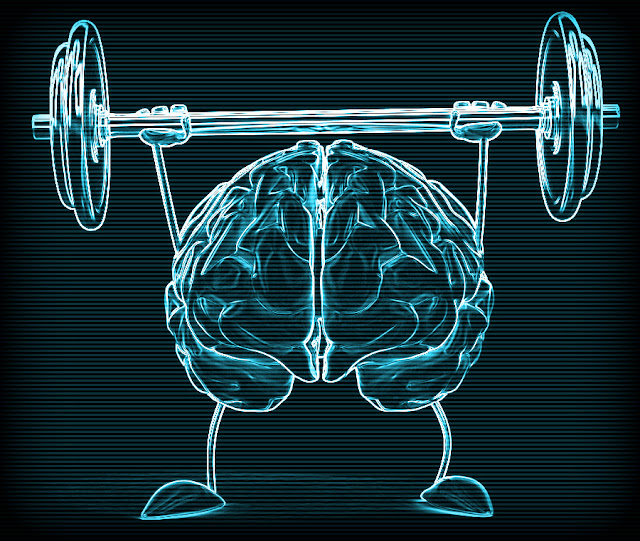 The 'next shot is going in' mentality is why he was such a potent offensive player. He always thinks, "My next shot is good."
The 'next shot is going in' mentality is why he was such a potent offensive player. He always thinks, "My next shot is good."
Focus on the Process
A key component of playing present is being able to focus on the process, not the result. For instance, don't worry about whether or not you make the shot. Instead, focus on the steps needed to greatly increase your chances of making the shot:
- Being on balance
- Having good footwork
- Staying square to the rim
- Keeping your eyes on the rim
- Executing your shot technique
- Holding your follow through
Focus on these things because they are things you have complete control over. You control whether or not you are on balance, have good footwork, are square to the rim, etc. If you focus on these things, more times than not, you'll make the shot. But if you only worry with the outcome (making the shot) instead of the process (the steps above), you will not be a very good shooter.
You need to be so into the moment ('Play Present')... that on an offensive possession you are thinking something to the effect of, 'cut hard to an open space, catch the ball, square up, survey my options, and make the right play.' Now of course all of this needs to happen quickly, in real time. You can't be out on the court in La-La-Land day dreaming! In fact, it is the opposite. When you 'Play Present', you are so dialed in you have razor-sharp focus.
Creating this awareness is what separates an NBA superstar from other talented players. He always gets back to the process and doesn't worry with the outcome. Don't be a sucker for the results! Focus on perfecting the process and the results will follow.
John Wooden was famous for NEVER talking about winning. All he talked about was the characteristics needed to be successful. In his case, the winning (obviously) took care of itself.
Just remember, the next step is always the most important step... focus on each and every possession. Play present. Coach Betchart also calls this concept W.I.N. -- 'What's Important Now?' The only thing that should be important now is the play that is right in front of you; the next play.
Play present. Coach Betchart also calls this concept W.I.N. -- 'What's Important Now?' The only thing that should be important now is the play that is right in front of you; the next play.
Have you ever taken a toy away from a 1-year old? They cry. Then you give it right back to them. They stop. They don't dwell on the fact that you took it, they are dialed into the fact they have it back.
Now as a parent, and as a coach, it is my job to keep them 'Playing Present.' Keep them focused on what they can control. Keep them focused on the process.
Psychology of basketball: preparation of basketball players
Psychological preparation of basketball players is a powerful tool in achieving a high goal
There are many examples when, contrary to all forecasts and predictions based on the technical, tactical and physical skills of the players, the match is won by a weaker team. And then they say - character won. And that's right. Without high-quality psychological preparation, it is impossible to succeed in the tournament. And if the technical, tactical and physical capabilities of basketball players are equal, the team that has a higher psychological readiness for trials wins.
And if the technical, tactical and physical capabilities of basketball players are equal, the team that has a higher psychological readiness for trials wins.
Peculiarities of psychological preparation of basketball players The psychology of basketball and sports in general is of interest to all specialists, one way or another connected with sports activities - coaches, team managers, sports doctors, leaders. After all, success in the game depends not only on the physical condition of basketball players and their technical and tactical training, but also on psychological preparation.
If basketball players are not mentally prepared for the game, all the knowledge and skills acquired by many years of grueling training can nullify the result of the game in a matter of minutes. Pre-launch fever, excessive excitement, or vice versa, complete apathy, panic fear before the upcoming competitions will not allow athletes to show everything they are capable of.
And, on the contrary, high psychological preparation, the state of the fighting spirit of the players can level out some flaws in the general preparation, and help to win a team victory.
Mental qualities inherent in successful basketball players Basketball is a difficult coordination sport. Athletes operate in conditions when the situation is constantly changing, the opponent is actively counteracting. Basketball players with a shortage of time to analyze the situation from a number of alternatives need to choose the best option.
Qualities characteristic of effective basketball players:
- switching and distribution of attention;
- speed of operational decision, taking into account probable situations according to the optimal tactical scheme;
- speed of sensorimotor response;
- intelligence, courage;
- timely concentration;
- stability of complex motor reactions;
- fast search for effective and unexpected solutions.

Psychological indicators of success are important in studying the psychology of basketball, the reasons why teams succeed or fail.
The specifics of competitive activity Performance in competitions, especially if these are high-level tournaments, imposes a great responsibility on each player. The situation is aggravated by the fact that the cost of even one unsuccessful throw can cost the entire team to defeat. Such harsh circumstances place special demands on the psyche of athletes.
Therefore, the main goal of a psychologist and a coach is the formation of a goal setting for players to participate and actions in a particular competition and the adaptation of basketball players to the unpredictable, extremely difficult conditions of basketball tournaments.
Leading the team to the tournament in the best fighting condition, in the best sports shape - this is what every coach strives for.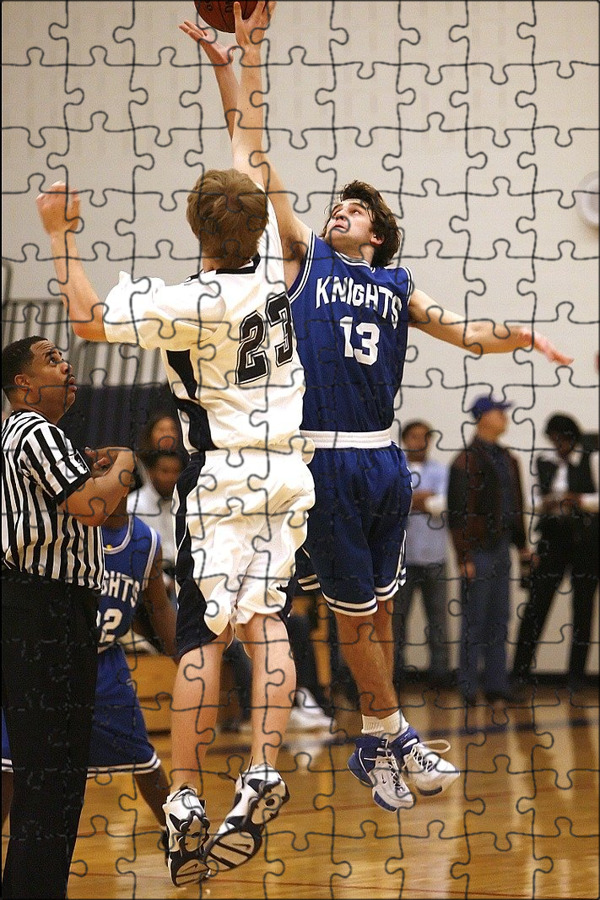 Thanks to competent psycho-physical training, basketball players can quickly “get together” and mobilize all resources. But this approach is achieved only by hard and painstaking work over many years.
Thanks to competent psycho-physical training, basketball players can quickly “get together” and mobilize all resources. But this approach is achieved only by hard and painstaking work over many years.
Psychologists and coaches help basketball players develop such mental qualities that make it possible not to take into account negative factors that bring them down (fear of defeat, loss of self-control), and at the same time contribute to achieving the peak of sports form for important competitions.
On the psychological readiness of the players for the match The game for basketball players is a powerful stressor, which brings the tension of each player to his limit. The stress factor fully reveals the psychological qualities of basketball players, both positive and negative.
Therefore, it is the matches of official tournaments that clearly demonstrate the level of the team's preparation - both sports form and psychological readiness for the game. And this is precisely the indicator of the quality of the work of a coach and a sports psychologist.
And this is precisely the indicator of the quality of the work of a coach and a sports psychologist.
An athlete may experience pre-start fever due to nervous system overexcitation. An inadequate psychological state can cause an overly harsh reaction to a completely ordinary situation. The athlete's logical thinking decreases, he experiences anxiety, excitement, may be too fussy, overestimate his strength. The player's muscular performance decreases, there is no coordination in actions with partners, coordination of movements is disturbed. Such a state does not allow a basketball player to mobilize himself, to show everything that he is capable of.
The state of complete apathy is no better, when a basketball player has no desire to compete due to low excitement. The athlete is not able to get ready by the time the game starts, he has reduced motivation, may show indifference to the result of the fight.
The well-known Russian psychologist Yuri Khanin suggested that each strong player has his own, personal zone of optimal anxiety when an athlete shows the best results. In this optimal combat state for himself, the athlete impatiently waits for the start of the game, he is moderately excited, perfectly controls his feelings and reactions. The player is confident in his abilities, he does not react to distractions and is motivated to win the duel.
In this optimal combat state for himself, the athlete impatiently waits for the start of the game, he is moderately excited, perfectly controls his feelings and reactions. The player is confident in his abilities, he does not react to distractions and is motivated to win the duel.
The main tasks of sports psychologists The activity of a sports psychologist in team sports, and in basketball in particular, covers three levels:
- work with the team;
- work on personality:
- revealing the individual characteristics of each player.
Personal characteristics determine the character of an athlete. Therefore, the most important tasks that psychologists solve is the study of the personal characteristics of each player of the basketball team.
An athlete's relationship to the world around him is formed under external influence - a coach, a psychologist, and under internal influence - thanks to the self-regulation of the basketball player himself. Therefore, one of the important tasks of psychologists is to help the athlete master the techniques of self-influence. With their help, a basketball player can purposefully form a special mental state of readiness for competitions, which will help to cope with overexertion and jitters, and will provide an opportunity in the game to demonstrate all the potential accumulated over the years in training.
Therefore, one of the important tasks of psychologists is to help the athlete master the techniques of self-influence. With their help, a basketball player can purposefully form a special mental state of readiness for competitions, which will help to cope with overexertion and jitters, and will provide an opportunity in the game to demonstrate all the potential accumulated over the years in training.
Also of great importance is the psychological climate in the team
Great Gomelsky emphasized that all outstanding basketball players have complex characters. Especially for athletes, leaders of their teams. They are ambitious, ambitious and even vain. These qualities often led to conflicts in the team. This trend was also noted by coaches of other team sports - hockey players, football players, volleyball players.
Therefore, not only coaches, but also sports psychologists should participate in the formation of a favorable team in a basketball team.
It is objectively easier for specialists to assess the effectiveness of a coach's actions in creating a good climate in a team, because they have modern diagnostic methods for assessing the psychological climate in their arsenal. In addition, psychologists work in two directions, interacting with both the coach and the athletes.
Effective psychological assistance to coaches and basketball players Working with athletes, the psychologist finds out how satisfied each basketball player is with the relationships in the team, what is the psychological climate in the team. If the relationship is uncomfortable, he establishes the cause, conducts individual consultations with the players, investigates the origins of conflict situations.
To improve the psychological climate in the team, the specialist conducts psychological trainings on the formation of cohesion, the development of collective rules, tolerance in communication.
Interacting with the coach, the psychologist identifies possible problems with the players, helps him choose the right communication style in each specific situation, evaluates the effectiveness of coaching.
Trains the coach, as needed, in effective techniques to build trust with basketball players.
Varieties of psychological preparation Sports psychologists work on the general psychological preparation of the players and on the competitive.
- In the first case, it is supposed to teach the players the techniques and methods of regulating their emotional state in order to form the thinking of a winner. The purpose of training is to achieve psychological readiness for action in stressful game conditions by a basketball player.
- In the second case, psychological preparation for a certain tournament is carried out, and a setting is given to achieve a specific result.
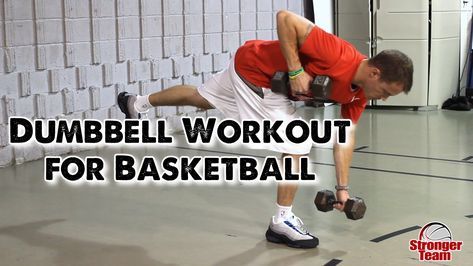
Thus, the psychology of basketball implies the formation of the psychological readiness of athletes for the game as a result of the purposeful action of specialists - sports psychologists and team coaches both immediately before the start of the game and during training.
More useful content in the sports industry community!
Join the
program and get more
bonuses from SPORTUNIVER.
LEAVE A REQUEST FOR CONSULTATION AND COURSE SELECTION
You may also be interested in:
ALL COURSES
Psychological preparation of basketball players | Physical education
Author: Poletaeva Nina Petrovna
Organization: MBU SShOR "Yunost"
Settlement: Belgorod region, Stary Oskol
CONTENTS
| | Introduction | 3 |
| 1. | Content and tasks of psychological training of basketball players | 3 |
| 2. | Types of regulation of mental states of an athlete | 4 |
| 3. | The content of the psychological preparation of basketball players | 4 |
| 4. | Literature | 10 |
| | | |
Introduction
Basketball is the most important means of physical education, aimed at increasing the efficiency and improving the psychophysical qualities of those involved. This is an exciting team game that contributes to the development and improvement of the physical, mental and intellectual qualities of a person; players' mastery of professional motor skills and abilities. Basketball instills in athletes willpower, endurance, perseverance, courage, determination, self-confidence, a sense of duty and responsibility, patriotism and collectivism. The effectiveness of the education of these qualities depends, first of all, on how purposefully the relationship between the physical, psychological and moral education of athletes is carried out in the training process. The training process in basketball is built on increasing the complexity and intensity of training sessions, acquiring special knowledge by players about the psychophysiological properties of the individual, the structure of the body and the biomechanics of human movements. In the process of detailed preparation for a long season full of various competitions and, directly, in the lessons on the technique and tactics of the game conducted by the coach, athletes acquire the necessary professional knowledge, skills and abilities to increase the variety of individual and team technical and tactical actions of basketball players. This suggests that the key to the successful performance of a basketball team in competitions is the high sports training of players (which is mainly realized in sports training), which includes all aspects of preparing athletes for a long sports season (theoretical, technical, tactical, moral-volitional and psychological).
The effectiveness of the education of these qualities depends, first of all, on how purposefully the relationship between the physical, psychological and moral education of athletes is carried out in the training process. The training process in basketball is built on increasing the complexity and intensity of training sessions, acquiring special knowledge by players about the psychophysiological properties of the individual, the structure of the body and the biomechanics of human movements. In the process of detailed preparation for a long season full of various competitions and, directly, in the lessons on the technique and tactics of the game conducted by the coach, athletes acquire the necessary professional knowledge, skills and abilities to increase the variety of individual and team technical and tactical actions of basketball players. This suggests that the key to the successful performance of a basketball team in competitions is the high sports training of players (which is mainly realized in sports training), which includes all aspects of preparing athletes for a long sports season (theoretical, technical, tactical, moral-volitional and psychological). Thus, sports training is a complex specialized process aimed at the formation, development and improvement of the necessary physical, psychophysical and psychophysiological qualities of players, which has a versatile effect on athletes.
Thus, sports training is a complex specialized process aimed at the formation, development and improvement of the necessary physical, psychophysical and psychophysiological qualities of players, which has a versatile effect on athletes.
Basketball is a team sport that requires full dedication from each player in changing game episodes on the court; it allows you to develop endurance, good coordination of movements, flexibility, mobility and jumping ability in the game. It is an excellent school for teaching the interaction of players in a team, because success in the game depends not only on the developed eye of the athletes, but also on their ability to understand the intentions and tactics of other team members. An important factor is the ability of players to make instant decisions, taking into account the game situation on the court, since the specifics of the game involve sudden changes in direction and pace, which alternate with forced jumps during shots, fighting for a high ball and trying to cover the throw.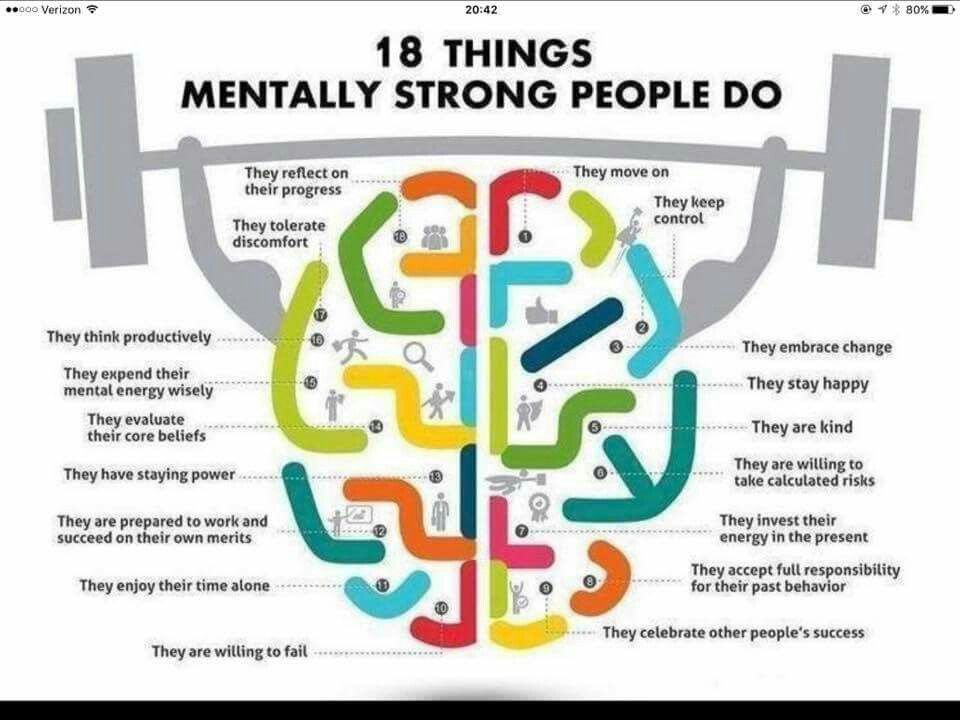 The main task of the coach in preparing for the sports season is to gradually lead the players to optimal physical, technical, tactical and mental readiness.
The main task of the coach in preparing for the sports season is to gradually lead the players to optimal physical, technical, tactical and mental readiness.
- Content and tasks of psychological training of basketball players
Psychological training is understood as a pedagogical process of formation and improvement of personality traits important for sports and mental qualities underlying them, in other words, psychological training can be understood as the process of forming a sports character [5].
The character of an athlete is determined by the properties of the personality, which is formed by fixing the necessary psychological states caused by certain mental processes. In terms of the psycho-pedagogical theory of activity, the management of mental states and the education of personality traits are correlated as a means and a result.
In this case, the mental state is understood as the corresponding attitude of the athlete to the world around him, which can arise both under the influence of external influences of the coach (external regulation of mental states), and due to the efforts of the athlete himself (self-regulation of mental states). Consequently, the coach, in addition to his own influence on the athlete's psyche, must teach him the methods of self-influence, which will significantly increase the effectiveness of the process of psychological preparation.
Consequently, the coach, in addition to his own influence on the athlete's psyche, must teach him the methods of self-influence, which will significantly increase the effectiveness of the process of psychological preparation.
- Types of regulation of mental states of an athlete
J. Wooden notes the importance of psychological training in basketball: every coach must know psychology and be a psychologist. Speaking about the “pyramid of success” he developed, which is based on diligence and enthusiasm, and faith and perseverance help to reach the peaks, he writes: “We all differ in our abilities. Some may have more abilities than you, they may be bigger, faster, stronger and have superiority in other physical qualities, but no one should surpass you in such very important qualities and characteristics as team spirit, enthusiasm, diligence, cooperation, constancy, determination, honesty, sincerity, reliability and integrity. Acquire and keep these qualities - and success is guaranteed" [2].
Acquire and keep these qualities - and success is guaranteed" [2].
The need for special psychological preparation for sports competitions is clear to anyone who is preparing himself for a career as a basketball coach. Preparing a basketball player for high sporting achievements is a long process that requires certain lifestyle restrictions associated with the need for large time expenditures to participate in training. Therefore, it is important to form an appropriate psychological attitude not only to sports competitions, which are a bright holiday, but also to the heavy gray everyday life of a long training process.
All of the above allows us to consider the content of the psychological preparation of basketball players in three interrelated blocks: 1) psychological preparation for the training process; 2) psychological preparation for competitions; 3) regulation of mental states in a particular match.
Hence, there are three general tasks of the psychological preparation of basketball players:
— to form a positive attitude to the training process;
— to form mental qualities that contribute to the achievement of success in competitions;
- create favorable mental states in a particular match.
- The content of psychological training of basketball players
High results in modern sports require many years of intense sports training and a lifestyle subordinate to it. The athlete must be psychologically prepared for this. Such preparation is carried out in the course of the sports training itself due to the constant formation of motives that are the motives for sports and training activities, or through the creation of favorable attitudes towards various aspects of the training process. This division is conditional, since motives can be formed, in particular, through the creation of appropriate relationships. However, the specificity of motivation requires its separate consideration. The process of formation of motives and attitudes towards sports training, in addition to external regulation by the coach, can be carried out, as noted above, by self-regulation. This is an important component of the content of psychological preparation for a long training process.
From here it is possible to formulate particular tasks of psychological preparation of basketball players for a long training process:
— to form motivation for the training process;
— to form relationships that ensure the success of the training process;
— teach methods of self-regulation of psychological states.
Analysis of numerous scientific and popular literature on psychology,
experience in psychological counseling of game students and a series of experimental studies conducted jointly with students of the Samara State University of Architecture and Civil Engineering, allowed the author to come to the following conclusions.
The desire to train can arise in a player without the influence of external reasons, arbitrarily, from the awareness of sports training as a goal, from interest in the game, the desire to improve one's skills, etc. It can also be caused by external factors, such as punishment and encouragement, threat and demand, group pressure, expectation of future benefits, etc.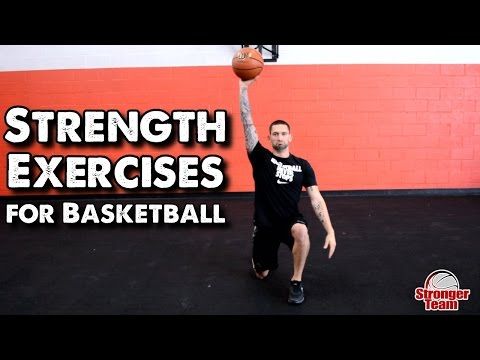 All these incentives
All these incentives
for sports training (in any activity in general) are called motives in psychology.
Motivation is the most important part of the learning process, and coaches are doing the right thing by focusing on this aspect of training. Most often, a coach motivates his players using rewards and punishments.
However, it is clear to the experts that when a coach cares about raising the level of motivation of his players, relying on their self-esteem, common sense and the need for self-improvement, he achieves better results.
According to special studies of foreign sports psychologists, among the motives for going in for sports, attractive for young people can be considered the possibility of maximizing their abilities, the ability to control oneself and the environment, and achieve physical perfection.
Less significant motives include the desire to be a “real man” (for young men), achieve social status, or receive large monetary rewards.![]()
Setting distant goals. Winning a city, country, world championship, or the Olympics are examples of far-reaching goals. The coach must show the player a series of intermediate goals, the successive achievement of which will lead the player or team to achieve far distant goals. At the same time, it is important that the achievement of the first intermediate goals is difficult, but real, allowing the athlete to experience a sense of success. Gradual achievement of goals after intense training contributes to the formation of an attitude towards a serious attitude to the training process.
Shaping and maintaining a mindset for success. At the heart of these actions of the coach is the encouragement of the development of the sports ambition of the players. Among the means of forming and maintaining the attitude to achieve success or develop sports ambition, one can note the promotion of the athlete's success. This is facilitated by the constant posting of statistical reports on the achievements of basketball players in individual components of the game on the wall of the gym, the creation of stands with photos of the best players and sports trophies of the team, mentions in the media about the sports achievements of individual players and teams, etc. At the same time, the coach must control the process of the formation of sports ambition and prevent it from turning into the form of sports vanity.
At the same time, the coach must control the process of the formation of sports ambition and prevent it from turning into the form of sports vanity.
The optimal ratio of rewards and punishments. The most common means of increasing the motivation of players to the training process is the coach's assessment of their performance in the form of praise or disapproval. Any of these methods are more useful than the coach's markedly indifferent attitude towards a player with insufficient motivation. The issue of preferential use of praise or disapproval is decided based on the needs of a particular pedagogical situation and the player's personal characteristics, and in this sense, the behavior of the coach should be quite flexible. In addition to praise, real symbols of the players' achievements are used as an encouragement: badges, diplomas, tokens, medals, prizes, etc.
Emotionality of training sessions. It is understandable that praise or disapproval by a coach elicits an emotional reaction from the players. Thus, motives are closely related to emotions. In other words, if the training process is not emotional enough, it is difficult to maintain the necessary motivation for it.
Thus, motives are closely related to emotions. In other words, if the training process is not emotional enough, it is difficult to maintain the necessary motivation for it.
An increase in the emotionality of the training process and the corresponding motivation for it on the part of basketball players is facilitated by the inclusion of outdoor games in the training, the competitive method of organizing exercises, the introduction of background music into certain parts of the training, the presence of spectators at individual training sessions, encouraging the emotional behavior of the players, the emotional behavior of the coach himself .
Development of team traditions. The formation of a close-knit team of players and team spirit is one of the important means of increasing the motivation of basketball players for the training process. When a player begins to feel that his personal efforts help to solve collective problems, he has a different attitude to the training process. The development of the team's traditions is facilitated by the unified sportswear of the players, the organization of festive rituals, for example, on the birthdays of the players or the reception of new team members, commemorative tournaments and tournaments of team veterans, festive evenings after the end of the season, etc.
The development of the team's traditions is facilitated by the unified sportswear of the players, the organization of festive rituals, for example, on the birthdays of the players or the reception of new team members, commemorative tournaments and tournaments of team veterans, festive evenings after the end of the season, etc.
Special decoration of the room for the team can also become a tradition, as B. Knight described it.
Motivation is a year-round process. Players need to know what we expect from their games. We have a lot of slogans that we put up in the team room. One of them: "Victory loves those teams that are less likely to make mistakes." Basketball is a game of mistakes, and the team that makes fewer mistakes has the best chance of winning.
Pete Newell, who in my opinion is the best basketball coach in the world, shared this view: “Basketball is a simple game. You must hit more accurately than the opponent and make more throws. If you hit more accurately than they do, it says about your attack. If you hit more than they do, it speaks to your defense."
If you hit more than they do, it speaks to your defense."
Another of our slogans: "Calmness and movement are equal to an accurate throw." I also encourage mine to read and leave materials in the locker room that I believe will help the player in their development as both a citizen and a player, motivation keeps your players doing what is necessary to play basketball successfully.
Making collective decisions. Discussing the goals and particular tasks of the training process with the team, making collective decisions on training and lifestyle issues under the guidance of a coach significantly increase the players' motivation for the training process. An excellent example of this is the experience of B. Knight.
Goals are set for the whole team, in accordance with this, static information is collected at each game, with which the players get acquainted after the end of the game, dividing it into three groups - attack, defense and general. On the side of each goal, leave a place to mark the result.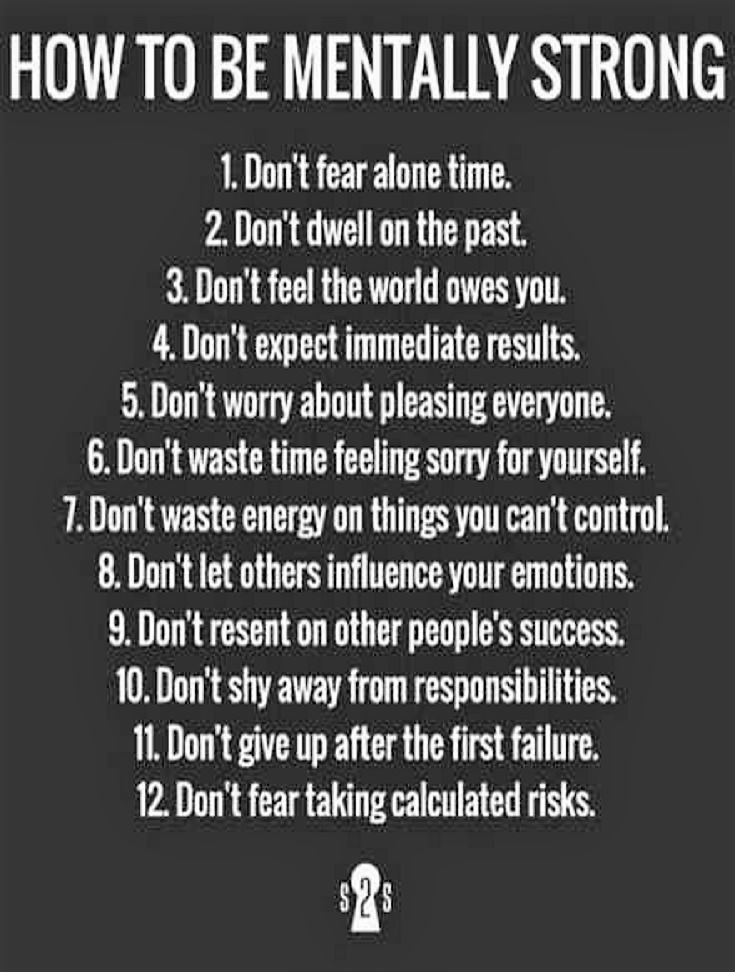 If we have reached the goal, we write down the percentage in black, if not, we make a mark in red. Goals should be challenging enough, but achievable. We've maxed out at eight goals in a single game, and have averaged five goals in every game over the last two seasons.
If we have reached the goal, we write down the percentage in black, if not, we make a mark in red. Goals should be challenging enough, but achievable. We've maxed out at eight goals in a single game, and have averaged five goals in every game over the last two seasons.
Attack targets: field goals - 52%; free throws - 75%; losses -10%.
Objectives of defense: 1) to prevent the opponent from scoring more than 65 points per game; 2) to prevent the opponent from exceeding 42% of the effectiveness in shots from the field; 3) prevent any of the opponent's players from scoring more than 20 points; 4) force the opponent to make 214 losses.
General goals: 1) to score first in each half; 2) pick up 58% of all bounces; 3) commit no more than 16 personal fouls; 4) make 12 throws more than the opponent.
If you achieve all these goals, it will be impossible to lose. It is not enough to tell a player to play to the best of their ability. This task must be specified in numbers.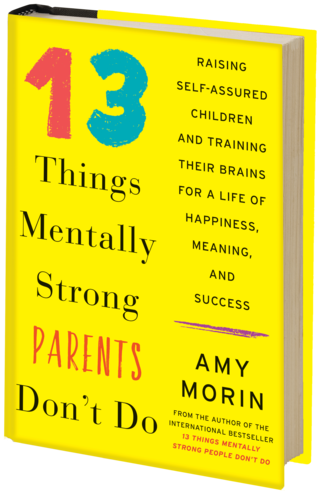
At first glance it seems that Knight is talking about a special psychological preparation for the competition. However, it is not difficult to imagine how the players begin to relate to the training process after making these kinds of collective decisions.
Personal characteristics of a coach. A strong motivating factor in the conscientious attitude of players to the training process is the personality of the coach himself.
To quote B. Knight again: “Motivation starts with the coach. We must motivate ourselves daily. I try to do this by going to every training session, counting everything from the moment I enter the court, for example, if there is any of the players that I need to reprimand in order to set them up for a good job.
Among the many characteristics of a coach's personality that help motivate players, one should first of all name confidence, exactingness, optimism and perseverance, curiosity and professional intuition.
The coach must be confident in his competence and the decisions he makes. We must remember: the fact that your team is not in the top three, and you yourself are not yet part of the coaching elite, constantly mentioned in the media, does not mean that you cannot train. Your confidence instills faith in your students.
We must remember: the fact that your team is not in the top three, and you yourself are not yet part of the coaching elite, constantly mentioned in the media, does not mean that you cannot train. Your confidence instills faith in your students.
The coach must be equally exacting (we are talking about discipline) to all players. Otherwise, he will begin to lose confidence in himself. It is good if behind his firmness the players will feel friendliness, respect for themselves. In the end, the success of the coach and the success of his students are interdependent, which is a sufficient basis for mutual respect.
Coach's optimism helps players to overcome the inevitable difficulties of the training process. Everyone understands that it's easier to be optimistic when your team is winning. If she loses, it is useful to recall the statement of Albert Einstein and Leonardo da Vinci that 90% of their experiments ended in failure. But they were persistent, and this ultimately determined their success. Remind your students of this.
Remind your students of this.
Dictionaries define curiosity as the desire to acquire new knowledge; inquisitiveness. At first glance, the coach's curiosity concerns only himself. In fact, everything in the communication between an athlete and a coach is interconnected. An inquisitive coach is always eager to learn more about the secrets of his profession. His wide erudition helps him explain to the players the patterns of the training process and the need to use certain means of training in it. Knowledge of this kind helps players to form a meaningful positive attitude towards the training process.
But it's not so much about this, but about the fact that the training process is too multifaceted, and each player is too individual to give recipes for all occasions in advance. The most necessary at the moment ways of influencing students, including to increase their motivation, the coach helps to find professional intuition, the development of which is determined, on the one hand, by practical experience, and on the other hand, by the desire to acquire new knowledge, or curiosity.
Summing up, it should be noted that, according to one of the country's leading hockey coaches V.V. Tikhonov, the final meaning of the coach's activity is not physical, technical or tactical training, but the formation of the will of the ward. And the development of the will is associated primarily with the formation of a rich motivational and semantic sphere of the players. And the coach must know how to do it.
In addition to the formation of players' motivation, the coach's task also includes the formation of a system of attitudes towards different aspects of the training process. "The system of relations determines the nature of the experiences of the individual, the peculiarities of the perception of reality, the nature of behavioral reactions to external influences." The elements of the system of players' attitudes to the training process are the attitude to sports training in general, the attitude to physical activity, the attitude to training sessions, the attitude to the sports regime.
In order to create a positive attitude of players towards sports training in general, the coach should not determine the team's starting line-up during the pre-season. It is better for him to constantly change the starting five so that the substitutes do not feel useless. According to B. Cosey, the late deadlines for determining the starting five make the entire team take a more responsible attitude to the training process.
D. Wooden advises ending each practice session on a positive note so that the coach and players look forward to the next session. If the coach and players end a session in an irritated or pessimistic state, they are unlikely to look forward to the next session and have to start under difficult conditions that might not be there.
Fear of large training loads is basically removed by good motivation. Hockey coach V.V. Tikhonov talked about the "barriers" that are built in front of each athlete and coach in his activity and which must be overcome in order to move on. His main ideas included the following provisions:
His main ideas included the following provisions:
1) there are no limits in loads;
2) the idea that one should take care of oneself is wrong. As soon as the thought of “saving” oneself appears, the athlete ends there: he was unable to overcome such a barrier;
3) the athlete must strive to be in peak form all the time, avoiding a decline in form.
V.V. Tikhonov sees it in breaking the barrier of fear - the fear of burden.
D. Wooden also spoke about the experience of developing positive attitudes towards large training loads through the collective acceptance of what he called “training rules”. Here are some of them: “Never think about your bruises and fatigue. If you are tired, think about how your opponent might have run out of steam”; “The condition is improved by hard training work after you are exhausted. Force yourself to work when you get tired”; "Set a goal for yourself to be in better condition than your supposed opponents." Copies of these jointly agreed rules are given to each player on the team, after which, according to Wooden, he must either agree with them or leave the team.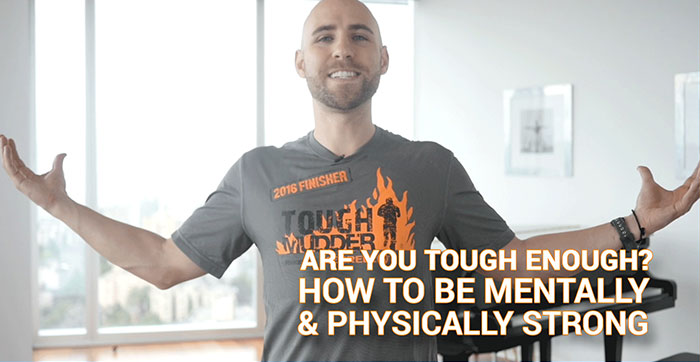
Practice has shown that following the principles formulated above significantly speeds up the process of transferring the nature of the team's activities from collective to joint.
References:
[1] Vavilov A.L. Group cohesion, individual preparedness and effectiveness of the game of the basketball team // Actual problems of human knowledge in the field of
educational activity: materials of the annual scientific session of the BPA on May 25
2000 - St. Petersburg: BPA, 2000.
[2] Wooden D. Modern basketball / Per. from English. and foreword. E.R. Yakhonotov. - M .: Fizkultura and sport, 1987.
[3] Gomelsky A.Ya. Basketball team management. - 2nd ed., add. - M.: Fizkultura i sport, 1985.
[4] Gomelsky A.Ya. Prove yourself right by winning. - M.: Soviet Russia, 1987.
[5] Gorbunov G.D. Psychopedagogy of sports. - M .: Physical culture and sport, 1986.
[6] Daimatsu H. Follow me / Per. from Japanese.